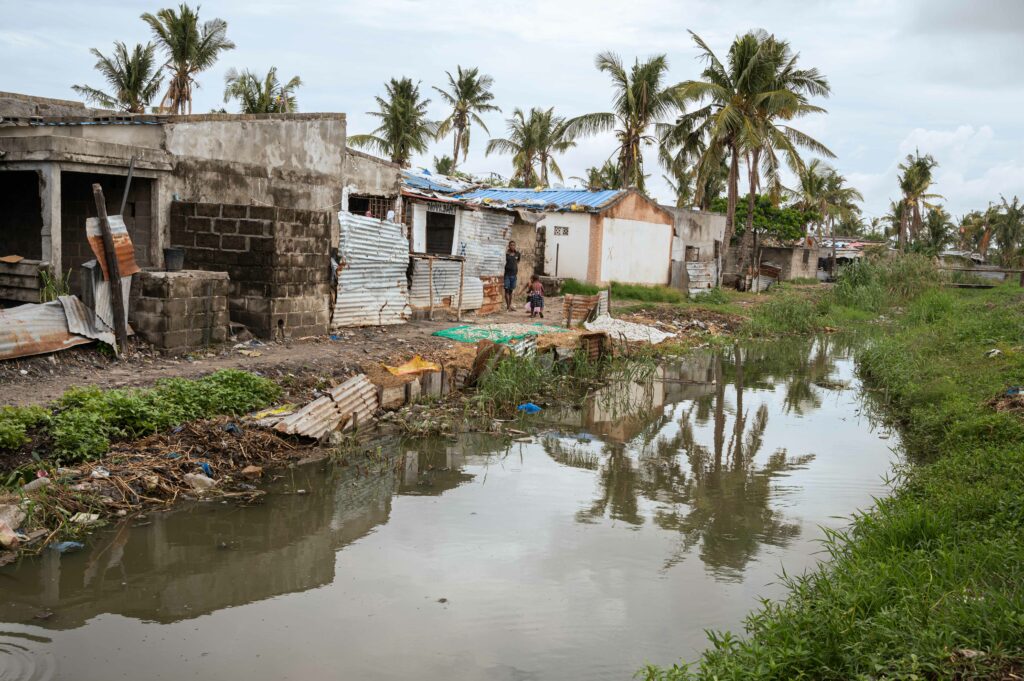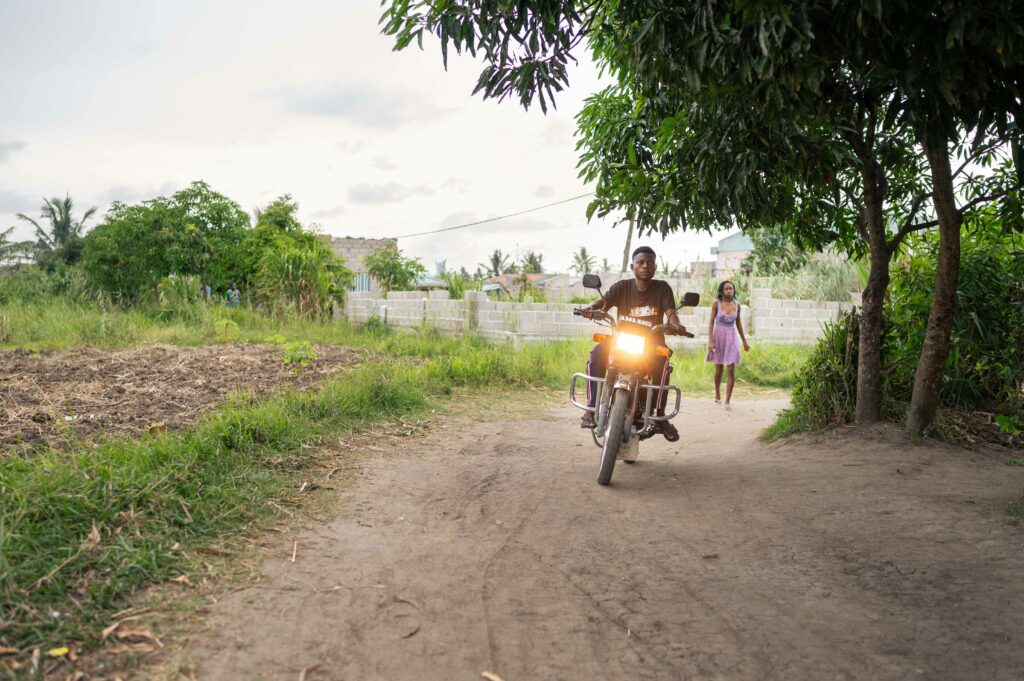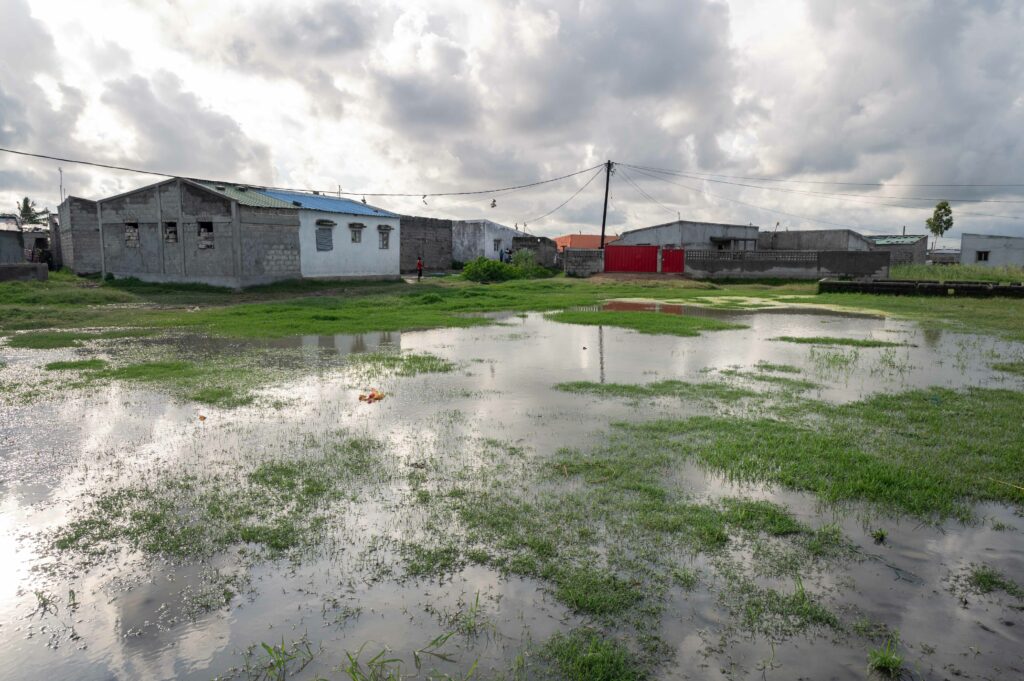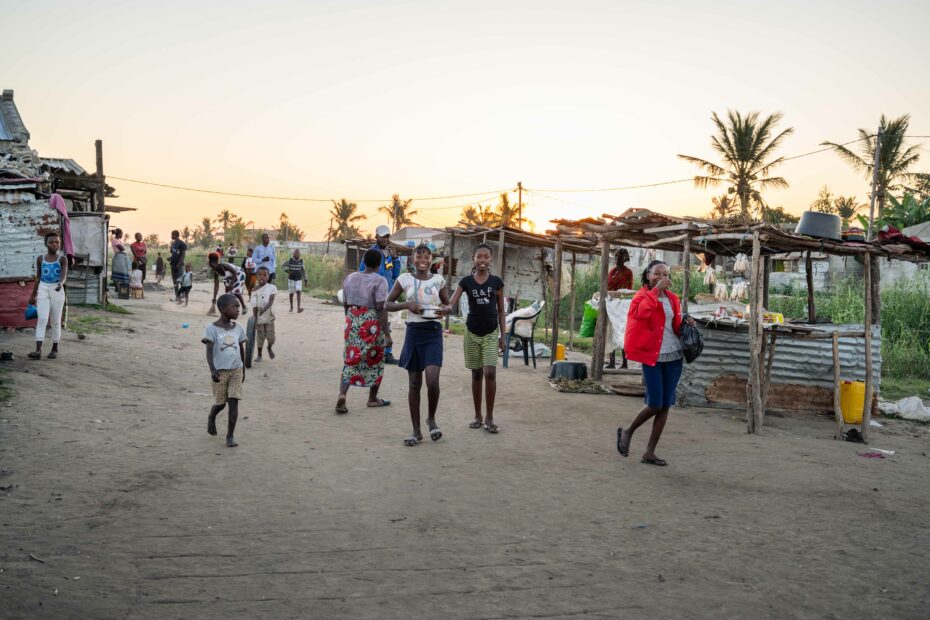By the middle of this century, 57% of global population growth will take place in sub-Saharan Africa, which will contain 23% of the world’s population, or some 2.3 billion people. The urbanisation of the continent will grow just as fast. It should be properly planned to avoid the proliferation of social and environmental problems typical of urban areas due, for example, to the scarcity of adequate housing and the precariousness of basic services and infrastructure (roads and access routes, waste management, drinking water supply, sewage, water drainage, energy, green areas, etc.). Without proper planning, we will see the marginalisation of many urban areas characterised by a low quality of life.
This is exactly what we observe as we enter many neighbourhoods of Beira, a coastal city in Central Mozambique. Beyond a few main thoroughfares and neighbourhood streets, many areas are real labyrinths with narrow zigzagging and dust alleys, precarious houses built next to each other, lack of public infrastructure, obstructed water drainage canals, piles of rubbish, flooding and overcrowded areas. Many people, but especially many young people and children.
Beira is also a city undergoing rapid transformation. The efforts of the municipality and the Mozambican authorities, supported by various development partners, are considerable and concentrated mainly on water drainage, sewerage, coastal protection, waste management, urban planning and local governance. MUDAR is part of this context. It aims to strengthen the management and technical skills of the Municipality of Beira in the field of urban planning, in order to better address the numerous challenges that the city will face in the coming decades.
To this end, MUDAR envisages a series of training cycles throughout the duration of the project. The training is tailored to the technical, administrative and management needs and requirements of the municipality and is intended for city councillors, managers and technicians. Each cycle is carefully designed through a close and ongoing dialogue between the Centre for International Cooperation (CCI) and IFAPA – Beira (Beira Institute for Training in Public Administration), which are in charge of the project’s training activities, and the municipality, which is the direct beneficiary. In recent months, two new training cycles have dealt with skills, tools and methodological approaches related to project, programme and human resources management, as described in more detail here.
As mentioned, this training is aimed at strengthening the administrative, managerial and technical skills of the municipality and is very important to transform local development processes into concrete actions and targeted public policies. These skills are needed for the ordinary and extraordinary activities that the municipality has to deal with on a daily basis. Furthermore, they will be useful for the implementation of the pilot project in the coastal neighbourhood of Macuti, which is one of the pillars of MUDAR.
It is precisely in Macuti that we have seen significant developments in recent months. In fact, a number of committees, coordinated by the Consorzio Associazioni con il Mozambico (CAM), have been set up at municipal and local level. Each committee plays a different role. Each one is interconnected with the others, with the aim of creating a solid network of dialogue between project staff, operators, administrators and the population, which is fundamental to the success of the project.
This work, which stemmed from the need to forge relationships on several levels, was fundamental in order to understand the social, environmental and infrastructural characteristics of the neighbourhood and identify the major problems to which MUDAR could provide an answer. It is therefore through this participatory process that an initial phase of data collection led to the adoption of a urban development plan at neighbourhood level, drawn up by the Department of Civil, Environmental and Mechanical Engineering of the University of Trento. Among other things, this provides for the identification of integrated urban regeneration works and services that will be implemented in some well-defined areas of Macuti by the municipality together with the local community.
MUDAR thus seeks to provide concrete answers to the dynamics of urban development in Beira, seeking to improve the planning and administration capacities of the territory. The project does not only concern Beira, but also other cities in Mozambique, on the African continent and beyond. The problems to which MUDAR wants to respond concern us all. This is why we try to tell the story of the project through various formats and in various contexts, in Italy, Mozambique and elsewhere.
On MUDAR’s Instagram and Facebook pages, we followed the work of Osuonomio with whom we are working on the production of a novel podcast to tell Europe to Africans and Africa to Europeans in an innovative way. It will be a story between two worlds that, for different reasons, are going through a season of great changes. And these changes will frame the story, which will be ready in early 2024.
In the coming months, we will also work at the realisation of a photographic and video reportage to tell the story of a ‘periphery’ of an African city, Macuti, with new eyes, to witness the great changes taking place there. This work will be presented in an exhibition to be held by the end of the project in both Italy and Mozambique. In addition, we will use MUDAR’s social pages through which we will tell the story of everyday life in Macuti, as well as the ongoing project activities. We will describe everyday life in the neighbourhood: work activities, household chores, moments of leisure and sociability with family and friends, the search for creative solutions to everyday difficulties, fashion and art. But we will also talk about some of the problems that characterise the neighbourhood and the city, starting with the frequent flooding that is occurring more and more often, also due to the climate crisis that sees Mozambique as a global hotspot.
And it was precisely about extreme weather events and urban planning that we talked about during a session dedicated to MUDAR at the Meteorology Festival in Rovereto (Italy), on 18 November, with the aim of exploring how to promote sustainable urban development and adaptation to the climate crisis in a context, that of Beira, subject to frequent cyclones and floods.
Active participation of the population is part of the foundation of MUDAR and is crucial both in finding solutions to promote adaptation to climate change and to promote sustainable urban development. It is about active citizenship participation that we talked last October at an event in Trento as part of the Settimana dell’Accoglienza. Through a number of direct testimonies, we explored how art, and in particular rap and photography, and academic research can foster the participatory processes that are the engine of social change. That change we want to foster through MUDAR.
Cover photo and other photos: Paolo Ghisu






